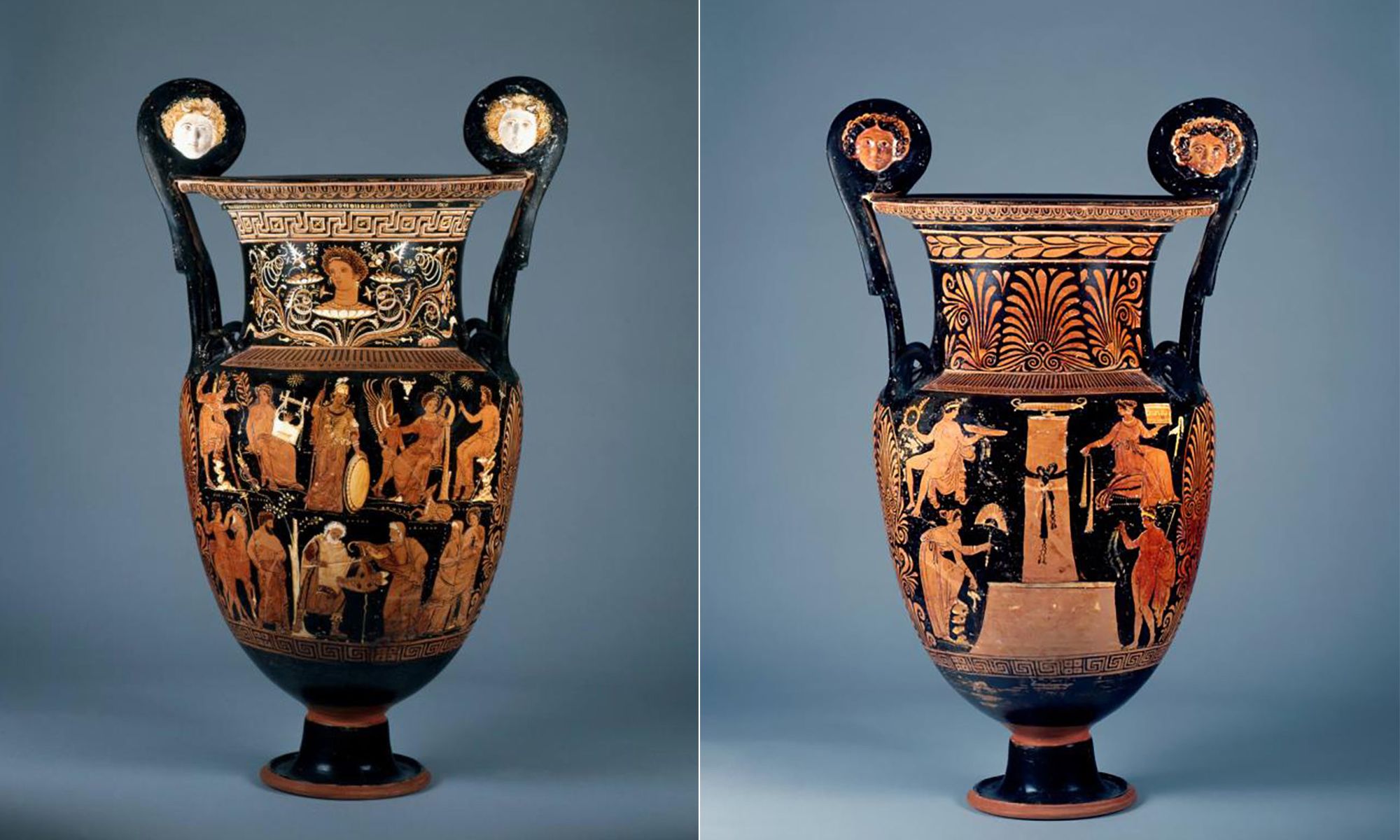Recto and verso views of a volute-krater from 330BCE-323BCE that is now on loan from the Italian government to the Carlos Museum at Emory University in Atlanta Courtesy Michael C. Carlos Museum at Emory University
The Michael C. Carlos Museum at Emory University in Atlanta has returned five looted objects to Italy amid ongoing investigations into the provenance of the institution’s collection. Two objects, a plate and plate fragment, have been removed from the museum’s digital catalogue and will be repatriated to Italy; three pieces of pottery will remain in Atlanta, but officially reclassified as being “loan by the Italian Republic”. The changes were previously chronicled on the blog Looting Matters.
The returns follow an investigation by the Chronicle of Higher Education, which found that the Carlos Museum currently possesses more than 200 artefacts connected to convicted traffickers. These objects are part of a larger group of more than 500 pieces whose buyers and sellers are known to have had ties to the market for illegal antiquities, acquired reportedly looted artefacts, had objects seized by authorities or returned them to their countries of origin.
Concerns regarding large sections of the Carlos Museum’s classical collection stem from their connection to museum curator Jasper Gaunt and trafficker Robert Hecht. Following a $10m donation to the museum in 1999, Gaunt said he was instructed to find “not the best, but the very best”.
In spite of the recent returns, many highlights of the museum’s collection remain without adequate provenance. Among the objects suspected to have been looted or trafficked is an excellently preserved Minoan painted bathtub, which the Carlos museum cannot trace beyond its 1960s acquisition by a Swiss dealer. Subsequently it belonged to Ursula Becchina, wife of convicted antiquities trafficker Gianfranco Becchina.
While the five repatriations constitute an important step toward reckoning with the history of the Carlos Museum’s collection, Emory professor of art history Cynthia Patterson told the Chronicle of Higher Education: “The problem is much more than ‘several objects’; it’s everywhere.”
The museum has not made any public announcements regarding the recent repatriations to Italy, but its website does list other recent returns, including an Assyrian ivory furniture applique that was returned to Iraq earlier this year after it was discovered to have been looted from the Iraq Museum in the aftermath of the US-led war in 2003.

